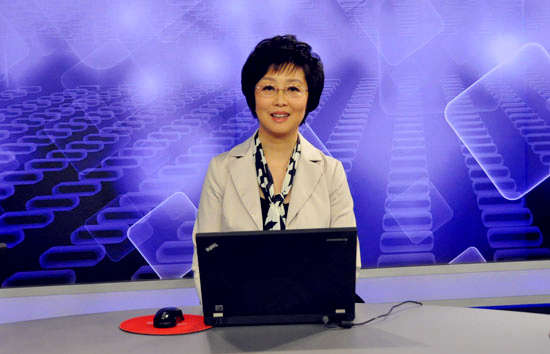Diplomatic translation and interpretation 'Dream Team'
- By Li Huiru & Gong Yingchun
 0 Comment(s)
0 Comment(s) Print
Print E-mail China.org.cn, December 10, 2012
E-mail China.org.cn, December 10, 2012
Translators and interpreters from the Ministry of Foreign Affairs are highly qualified due to their excellent skills in translation and interpretation. How does such a "dream team" come into being? Everyone is intrigued by this question. Xu Hui, deputy director-general of Translation and Interpretation Department at the Ministry of Foreign Affairs discussed the ingredients of such a "dream team" during an exclusive interview with China.org.cn at the 30th anniversary of the Translators Association of China (TAC).
|
|
|
Xu Hui, deputy director-general of Translation and Interpretation Department at the Ministry of Foreign Affairs. |
"The translators and interpreters in the Ministry of Foreign Affairs are selected from new graduates recruited by our ministry through selective examinations," Xu said.
"They have to go through a half-year-long 'devil training' before assuming their responsibilities independently. During this period, they are required to learn China's foreign policies, diplomatic vocabularies as well as translation and interpretation skills. After going through intensive training, they will begin an internship where they will have the chance to interpret or translate during relatively simple events. In addition to this, each candidate has to study abroad to further improve their language ability and accumulate experience. The internship lasts for about two years."
Further training is required. When the fresh translators and interpreters assume their post, there are more tasks for them to complete.
"Whether easy or difficult, translation and interpretation tasks are carried out in a step-by-step process and perfected through practice," Xu said. "Before each task, experienced colleagues will guide them in their preparation. They also provide on-the-spot teaching to new translators and interpreters."
To be an excellent diplomatic translator or interpreter, one needs to go through long-term training and gain experience. According to Xu, three aspects are crucial: solid language background, knowledge base and an understanding of relevant government policies.
With China's growing role in the international community, there's a growing need for countries around the world to learn more about China. As the bridge connecting China and the world, the importance of translators and interpreters cannot be understated. To better present China to the world, Xu suggested that translators and interpreters should know both themselves and the target countries.
"As long as we have a thorough understanding about China's actual conditions and culture, and translate it in a way that foreigners can understand, we can make sure the translated text is true to the original meaning. In this way, we can communicate our ideas to the maximum extent," Xu said.
Xu gave full recognition to the previous work done by the TAC in promoting the development of the translation industry. On the eve of the 30th anniversary of the TAC, she extended her best wishes to the continued development of China's translation and interpretation industry.







Go to Forum >>0 Comment(s)